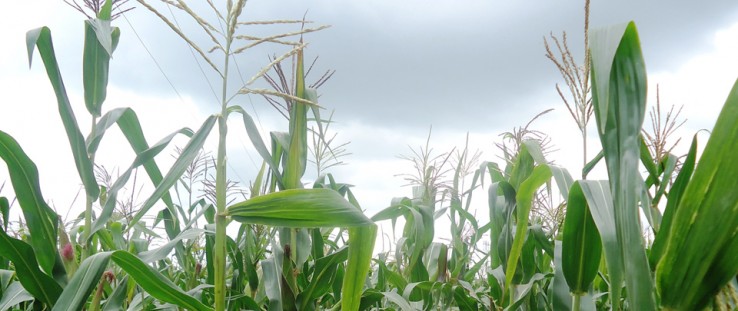 USAID/AGP-AMDe
USAID/AGP-AMDe
 USAID/AGP-AMDe
USAID/AGP-AMDe
When I last wrote a piece for FrontLines, I described USAID efforts to do development differently, particularly to help countries feed their own people and drive economic growth. In just a short amount of time since then, we’re already seeing results—proof that our modern approach to development is working.
In 2009, President Barack Obama led the world in reinvesting in agricultural development to address growing global food insecurity. The Feed the Future initiative, born out of this commitment, is the U.S. contribution to a global effort to do development differently and partner with developing countries to transform their agriculture sectors and create economic opportunities and global prosperity.
Smallholder farmers—particularly women—are at the center of Feed the Future’s approach. They hold the key to agricultural growth and transformation because increasing their productivity can fuel rural economies and create jobs and demand that, in turn, generate broader economic opportunity. Feed the Future works with our partner countries to reach these farmers with the tools, skills, knowledge and opportunities they need to reduce hunger, poverty and undernutrition.
Acknowledging that development is no longer about top-down, donor-driven programs, Feed the Future supports countries as they pursue the priorities they’ve set for their own agricultural development.
The initiative’s smarter approach focuses our efforts in fewer places where we know we can have a greater impact. We’re helping partner countries foster policy environments that incentivize investment and growth in agriculture. We’re building women’s empowerment, improved nutrition, and adaption to climate change into our food security projects.
And we’re bringing in diverse partners such as the private sector, civil society and the research community to help further maximize our impact and set up long-lasting structures and systems so that our help is eventually no longer needed.
We’re becoming more efficient and effective at tackling 21st century challenges, building a base of evidence around which approaches work best in our development programs. This evidence augments our modern, scientific approach to development, helping us make our aid more effective. Food aid reform is just one of many changes borne out of evidence about what wasn’t working and how to fix it to be more efficient, effective and sustainable.
As we ask others to be more transparent and accountable for results, we’re making sure we are as well. Feed the Future’s Scorecard allows the public to track how we’re changing to be more effective in delivering aid, holding us accountable to deliver results and do development differently.
This new approach is paying off. In the past fiscal year alone, Feed the Future helped nearly 7.5 million farmers apply new technologies and practices that will improve their productivity and increase their income. We also reached more than 12 million children under 5 with nutrition programs that lead to healthier, more productive lives.
Our approach is helping to change lives. In recent years, poverty rates have fallen by an average of more than 5 percent across Feed the Future focus countries. And stunting has decreased by an average of 6 percent from 2009 to 2012.
As we see this impact spread, farmers themselves are becoming ambassadors for agricultural development: like the poacher-turned-farmer in Zambia, who is helping other poachers put down their guns and take up farming as a safer, more stable and profitable way to make a living.
As farmers grow more, they’re reinvesting profits into their own businesses. And, like Ethiopia’s leading financial institutions, the private sector is taking notice, seeing farmers as viable business enterprises worth investing in.
This progress is trickling down to future generations. As parents make more money from farming and grow more nutritious foods, children are able to eat healthier and reach their full potential. Feed the Future is helping boost economic opportunities for future generations, for example offering trainings in Cambodia that provide young people with the skills they need to get jobs in agriculture.
Taking Success to Scale
The new approach to development that we’ve pioneered through Feed the Future is working. But the challenge remains: How do we impact even more lives?
Science and technology are integral to this effort, discovering new solutions as well as helping to get proven solutions to more farmers. To ensure smallholder farmers can access and use these solutions, we strengthen the capacity of local organizations and help farmers overcome constraints to adopting new techniques and tools. To support innovation, we’ve publicly released data for farmers and researchers to use. We’ve also invested in Feed the Future innovation labs, through which U.S. universities and international counterparts develop solutions for some of the greatest agricultural challenges farmers face.
The New Alliance for Food Security and Nutrition, launched last year by the G8 under U.S. leadership, is a key component of our effort to scale up success. Through it, more than 60 local and global private sector companies have committed to accelerate their investment in African agriculture, expanding seed production and distribution; establishing small-scale irrigation systems; and sourcing food from smallholder farmers, among other actions. And in turn, African countries have begun to make market-oriented policy reforms that enable inclusive growth and incentivize investment. The aid recipients of yesterday are on track to become the U.S. trading partners of tomorrow.
It is an apt time for FrontLines to feature Feed the Future. For the first time since the Green Revolution, ending global hunger and extreme poverty is in sight. No longer is food security a second thought when it comes to development. Feed the Future, under USAID’s leadership, has helped propel it to the forefront of the international agenda.
With this focus, determination and collective effort to tackle global food insecurity, we can continue to empower farmers and advance economic transformation—the kind of transformation that changes, even saves, lives and creates a more stable, prosperous world for our generation and those to come.







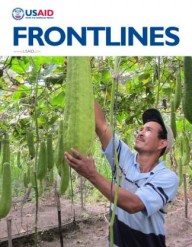

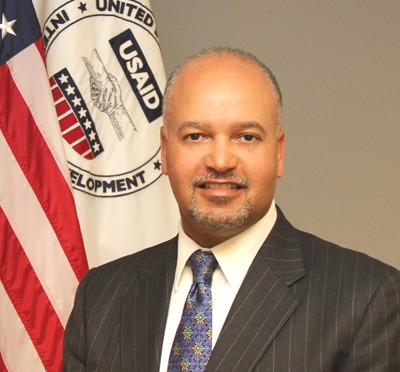

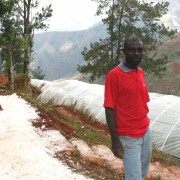
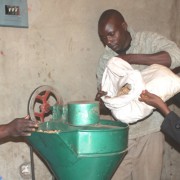
Comment
Make a general inquiry or suggest an improvement.